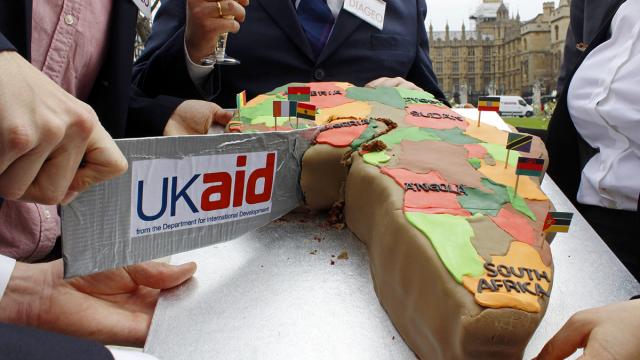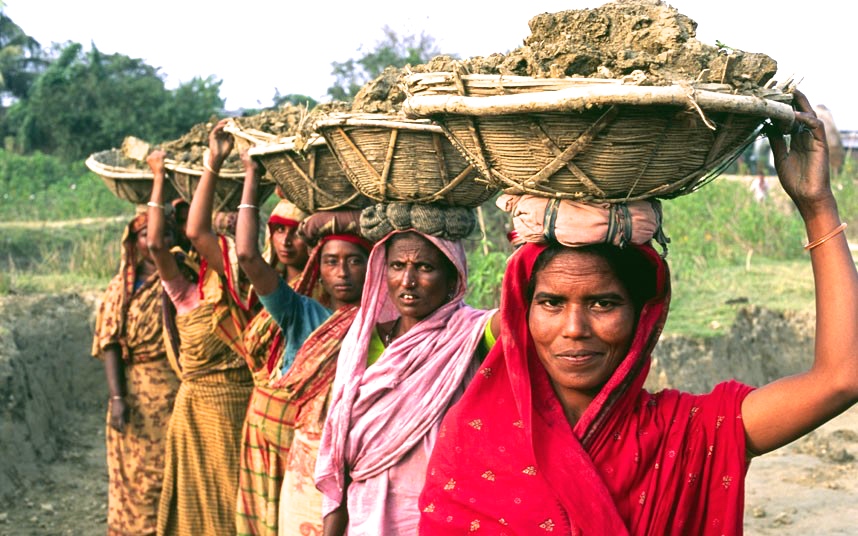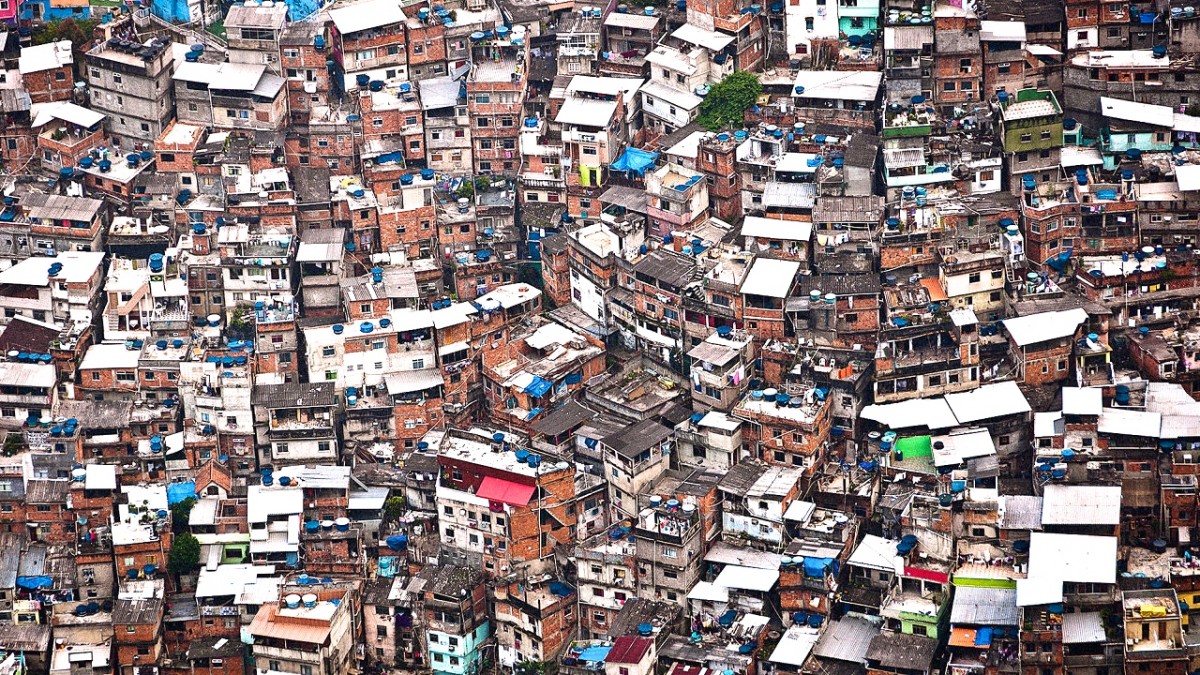
In June, the U.K. became the first G7 nation to enshrine into law a 1970 UN target of allocating 0.7% of gross national income to international aid. Although the U.K. only met the target for the first time last year, the new law means that all future British governments are legally obliged to meet it.
The move was welcomed by the government's International Development Secretary, Justine Greening, along with several aid organizations including Concern Worldwide, ONE Campaign and the Bond network, whose CEO Ben Jackson told the Guardian it “sends a strong signal to developing countries that we will continue to keep our aid promise to them.”
But since the law was first announced in March, several cases have come to light revealing how the government's Department for International Development (DFID), responsible for overseas aid, is increasing its support for the private sector and benefiting corporations rather than people.
In Nigeria energy sector workers are loosing jobs, in Tanzania farmers are being displaced, and Ugandans are unable to afford basic education while the companies involved, such as Agrica and Coca-Cola, are benefiting from access to new markets.
As a result, a number of aid and development organizations are becoming concerned over how DFID's funds are being allocated. Morten Thaysen, digital communications assistant at the campaign organization Global Justice Now, said the new law "is great news, but unfortunately we see continuous examples of U.K. aid money benefiting corporate elites rather than ordinary people.”
Education in East Africa
A report, Profiting From Poverty, Again, released in April by Global Justice Now, claims that “aid is being used as a tool to convince, cajole and compel the majority of the world to undertake policies which help big business” and that “DFID has become the world’s leading donor in spearheading a push for profit making companies to manage and deliver schooling in Africa and Asia.”
One example given is DFID's involvement in creating private, low-fee, for-profit primary schools via Bridge International Academies (BIA) in Kenya and Uganda. In May, more than 100 international organizations, including 30 in Uganda and Kenya, released a joint open statementto the World Bank expressing their concern over BIA, which Global Justice Network says uses “untrained low-paid teachers and aggressive marketing strategies to target poor households.”
Although the open statement was directed at the World Bank, which has invested $10 million in BIA, Britain's international development department is also involved through it's Impact Fund. Announced in 2012, the fund is a 13-year project worth £75 million ($115 million), and is DFID’s "principal mechanism for leveraging private sector investment" in developing countries. DFID's first investment through the fund is in Novastar Ventures, which in turn will investment in BIA.
A place at a Bridge school costs $6 per month. Therefore, according to Global Justice Network, sending three children to a BIA school would cost half of the families in Kenya and Uganda at least a quarter of their monthly income. In contrast, the 2015/16 budget for state schools in Uganda is just 10,000 Uganda shillings (less than $3) per child for the full year, say the Initiative for Social and Economic Rights in Uganda.
A DFID spokesman said that "in some developing countries low-fee private schools are part of people's daily lives,” and that “the U.K. works with a range of education partners to ensure the best possible results and value for taxpayers' money.”
But Angella Nabwowe, programs manager at Initiative for Social and Economic Rights, says: “What DFID is doing is promoting inequalities in Uganda. DFID should instead direct resources to public education which is grossly underfunded to the extent that we have schools that lack basic sanitary facilities.”
Despite these issues, DFID is also expanding its involvement in privatized education programs in the Democratic Republic of Congo, Ethiopia, Mozambique, Tanzania and Nepal. Through its Girls' Education Challenge, DFID will spend £355 million ($545 million) from 2011-2017 on education projects managed by the multinational professional services network PricewaterhouseCoopers, and is working with Coca-Cola to promote “the economic empowerment of 5 million female entrepreneurs across the global Coca-Cola value chain,” which Global Justice Network claims openly benefits the company’s sales strategy.
But it's not just in education where DFID's influence is benefiting private companies at the expense of local people.
Agriculture in Tanzania
A report released in June by the Oakland Institute reveals that British company Agrica received £10 million ($15 million) in U.K. aid money to help establish an industrial rice plantation in Tanzania run by Kilombero Plantations Ltd (KPL).
To make way for the new 5,818 hectare plantation, the report says many small-scale farmers were evicted from their land. And although KPL offered "outgrower" contracts allowing farmers to work for the company, many have been driven into debt due to poor returns and the inability to pay back loans needed to purchase the specific seeds and chemicals required for the work.
One farmer told Global Justice Network: “Through the contract, we were forced to accept technologies that we don’t really need to get a good harvest. All decisions about farming were made by KPL. Because I was in debt I had to do it the way they demanded.”
DFID is also contributing £600 million ($922 million) from 2012-2022 to support the New Alliance for Nutrition and Food Security, which will pump funds into Africa's agricultural sector and in return require changes in land, seed and trade rules to favor multinational agribusinesses over smallholder farmers.
Energy in Nigeria
In March, it was revealed that since 2002, £140 million ($215 million) has been spent by DFID to support the privatization of Nigeria’s energy infrastructure. The project, called Nigeria Infrastructure Advisory Facility, is being implemented by Adam Smith International, a consultancy firm set up by the free market thinktank Adam Smith Institute.
With just 40% of Nigerians having access to electricity – and with supply so bad that the state-owned Power Holding Company of Nigeria was nicknamed "Please Have Candle Nearby" – many say action is needed to help improve the situation. However, Nigeria's President Goodluck Jonathan and DFID's denationalization approach is arguably making matters worse.
Since handing over licenses to private companies, unions claim that 10,000 employees, or 25% of the workforce, have lost their jobs without compensation. Meanwhile there have been reports of increased blackouts and, according to Social Action Nigeria, most customers have faced a 50% price rise.
With an unreliable power supply and 67% of the population living on less than $1.25 a day, it has become unaffordable for many. Millions of households have therefore opted to generate their own electricity with battery inverters and gasoline generators. Even the government has had to spend $4.2 million on generators to keep its offices running.
“Nigerians have been blackmailed into believing that there was no solution to the electricity challenges without privatization,” says Ken Henshaw, the senior programs manager at Social Action Nigeria. “You have to ask the question, who is benefiting from the privatization of energy in Nigeria, as it certainly isn’t the people of Nigeria.”
An Ongoing Issue
On top of these recent cases, the U.K. government’s aid watchdog, the Independent Commission for Aid Impact, stated in its Business In Development report in May that “DFID should reassess how it appraises, monitors and evaluates its engagements with business to ensure fitness for purpose and a sharper focus on the poor.”
Likewise other organizations are putting pressure on DFID to adopt different approaches.
Uganda's Angella Nabwowe says that “what has to be done is to monitor where this money is going, and what it is exactly doing,” while Jessica Hammer of Oxfam says that “DFID should learn from past experiences, revise its support for private sector financing and prioritize investments in strong public services.” Global Justice Network adds says that “aid should be used to support human needs by building up public services in countries that don’t have the same levels of economic privilege as the U.K.”
But will the British government listen?
It is well documented that the Conservatives, who in May won an outright majority for the first time in 23 years, are gradually handing over control of the U.K.'s public services to private companies – the National Health Service being perhaps the most visible example. It is now clear that this agenda is not confined to Britain.
Despite a secure future for the U.K. aid budget, with Secretary of State for International Development Justine Greening talking of “emerging opportunities” for British companies in the developing world, and describing aid as “market making,” it seems that poverty alleviation is no longer the only priority of the government's aid program.
3 WAYS TO SHOW YOUR SUPPORT
- Log in to post comments


















